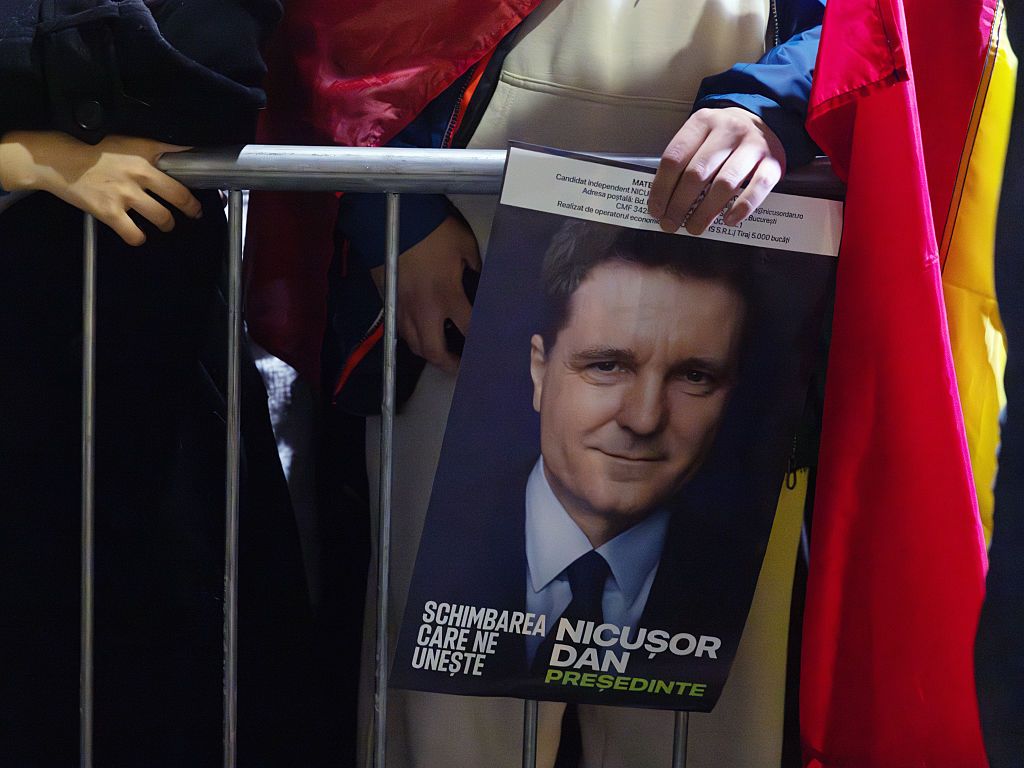Despite bomb threats, war fears, and disinformation, Moldovans still show up to reject Russia
In a country haunted by Soviet memory and threatened by Russian influence, ordinary voters chose the path toward Europe.

A pro-EU rally on the final day of the electoral campaign in Chișinău, Moldova, on Sept. 26, 2025. (STR / NurPhoto via Getty Images)
CHIȘINĂU, Moldova — Moldova's ruling Party of Action and Solidarity (PAS) has secured just over 50% of the vote, or 55 out of 101 parliament seats, keeping the country on a European path.
The result comes as somewhat a surprise, with Russian influence plaguing the country for months ahead of the Sept. 28 parliament election.
After four years in power, Moldovan President Maia Sandu's party was able to keep a parliamentary majority despite the country facing an energy crisis, and 35 percent inflation during this time, the pandemic, and the full-scale invasion of neighbouring Ukraine, that had drastically shaped the country's future.
"On the one hand these years were difficult for Moldovans, on the other hand, citizens have expressed public discontent against the government but the choice was in the end a very simple and extremely polarised one: we either continue with the EU integration process, or, generally speaking, we have the Russians come to power," political analyst Victor Ciobanu told the Kyiv Independent.
"We noticed an exemplary mobilisation of voters. In difficult moments, Moldovans do mobilise," he added.
The pro-Russian Patriotic Bloc, led by former President Igor Dodon and comprising the Socialist and Communist parties, as well as the new Future of Moldova party, got 24 percent of the vote or 26 seats.
Chisinau Mayor Ion Ceban's Alternative, which states its pro-European course in spite of its links to Russia, gained eight seats. The populist Our Party, led by Renato Usatîi, a businessman who made money with the Russian state railways, managed to scoop six seats.
"Where there are Russians, there is destabilisation."
One of the election’s biggest surprises came from the Democracy Home party, which received 5.6 percent of the vote, building its campaign around traditional values and Moldova's reunification with Romania.
With a much lower showing in opinion polls, the party garnered support on TikTok. Its leader, Vasile Costiuc, campaigned for the far right Romanian presidential candidate, George Simion, in 2025, and ran on Simion's Alliance of the Unification of All Romanians (AUR) party list in the 2004 Romanian parliamentary elections. Simion is banned from entering Moldova and Ukraine due to concerns over his links to the Kremlin, which the politician denies.
"We can explain Costiuc's rise through the channeling of Ilan Shor's votes, found within the 40% of undecided Moldovans in opinion polls. Democracy Home also got votes through the Romanian AUR's network. We can see the influence of the TikTok accounts coordinated from both Moldova and Romania, and connected to the Russian secret services," Ciobanu said.
Surviving election day
While the elections have been validated by the Central Electoral Commission, voting day was marred by several false bomb threats, which briefly disrupted the vote in popular diaspora polling stations — Rome, Brussels, and Bucharest — and in polling stations in government-controlled areas where people from the Russian-occupied Transnistria were casting their ballots.
State, as well as independent media websites were targeted by cyberattacks, including a major DDoS attack on the Central Electoral Commission website.
The authorities announced they temporarily blocked 4,000 websites in order to counter these attacks.
On the eve of the election, Russia and its proxies have also launched a disinformation campaign claiming that Moldova, together with Romania and Ukraine, plans a military operation against Transnistria, a Kremlin-occupied region in the country's east.
"Of course, we are scared by these attacks," said Daniel, 32, and Oxana, 31, sitting on a bench in Chisinau's central park on the sunny election day, while their daughter was playing around.
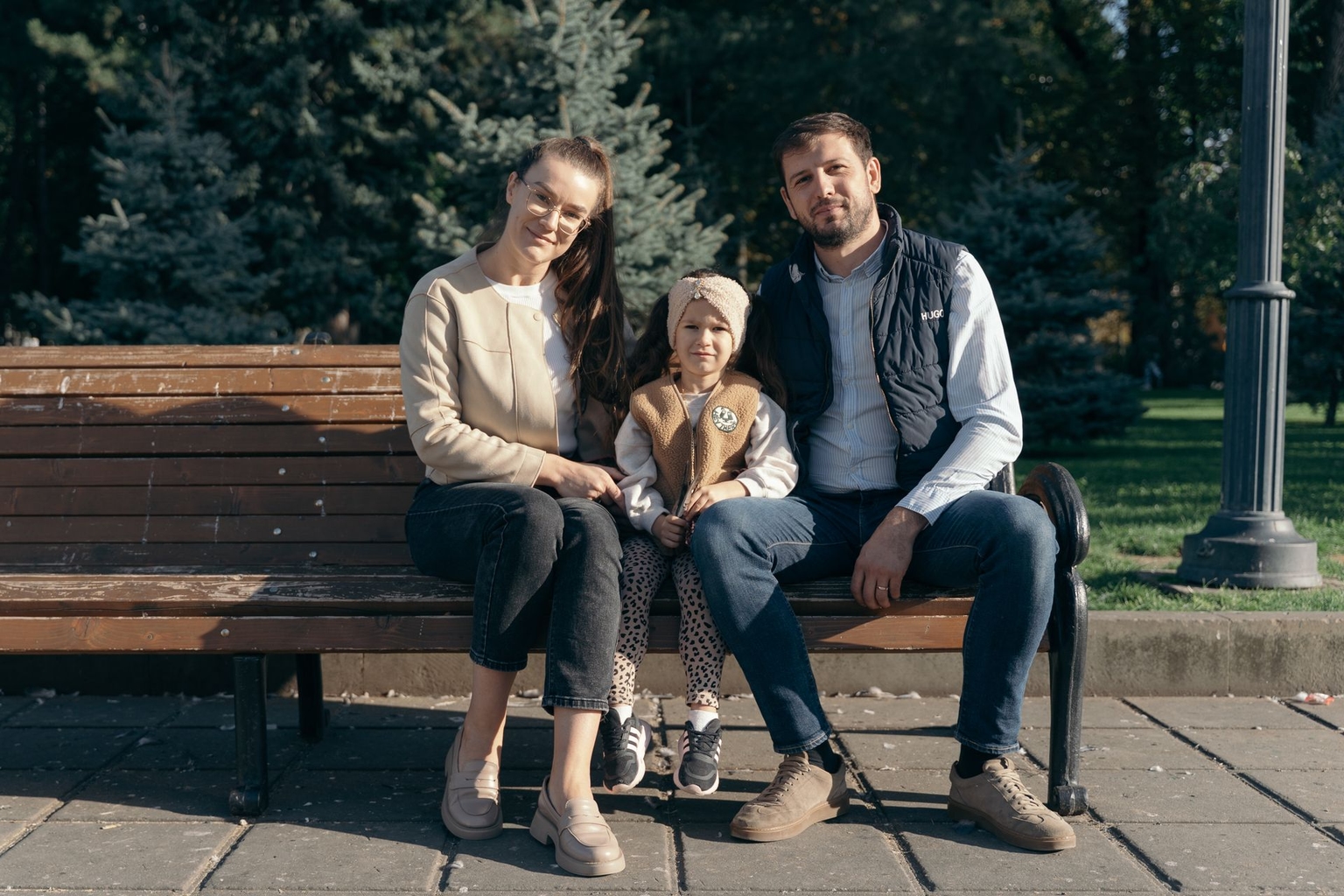
"We were just reading about all the disruptions," Daniel, an entrepreneur, added.
"It's logical that Russians are behind this, they 'adore' us. Where there are Russians, there is destabilisation."
Having recently opened a business in the agricultural sector, Daniel said that the business climate is better now for entrepreneurs, since the fiscal services do not harass businesses any longer, the way they did under other governments.
The couple had spent half a year in the U.K. a few years back but came back to Moldova. "We tried, it's nice in the U.K., but at home it's better, you feel more at peace, surrounded by family. Our daughter was born here and we want to stay here," Oxana said.
A few hundred meters away, 19-year-old students Emil and Victor, born and raised in the northern region of Edinet, said that they voted for Europe, in order to have a decent salary and the opportunity to visit different European countries freely.
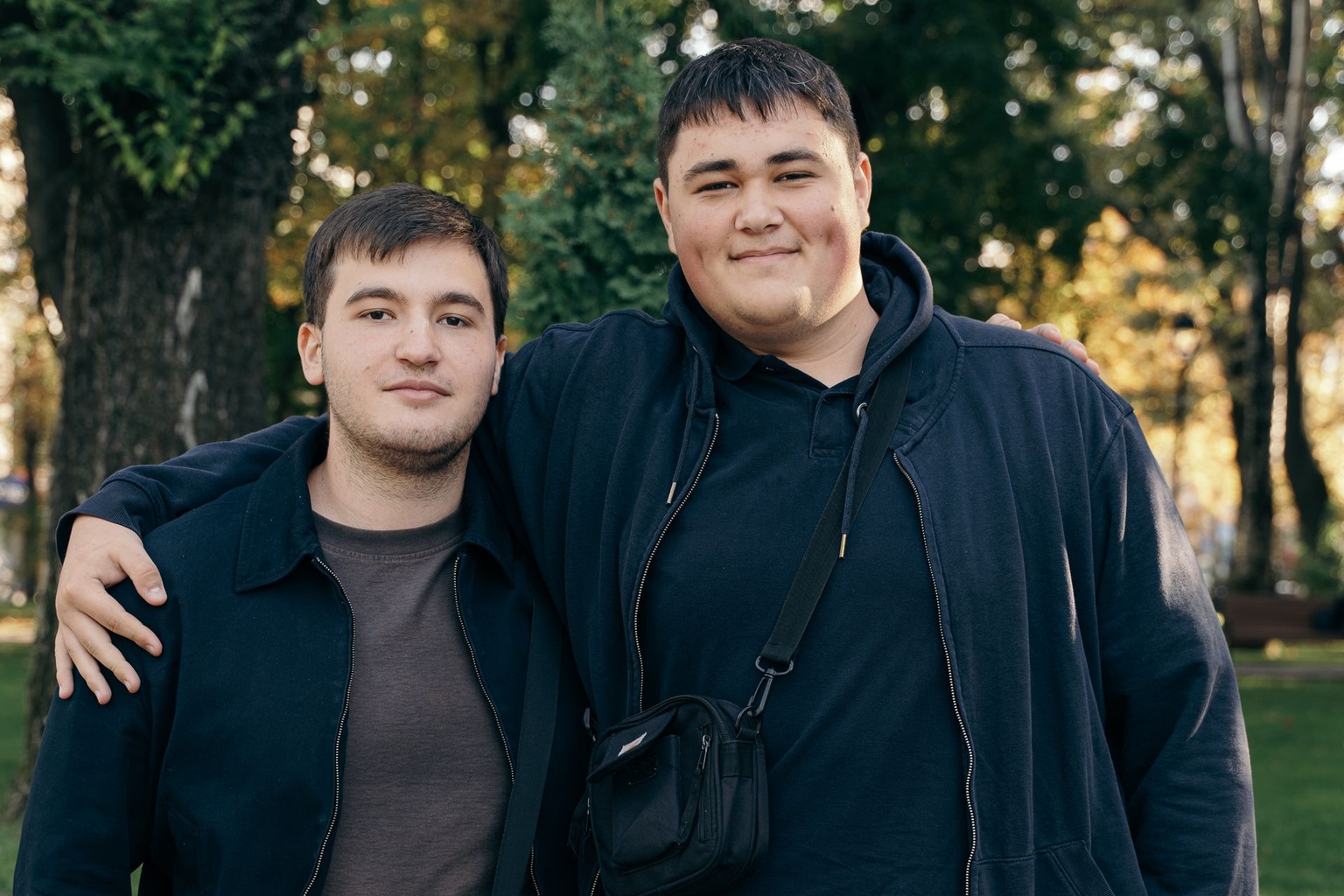
If Russians came to power, they would leave, the two young men said.
While 52 percent of Chisinau residents voted for the ruling pro-European party, 45 percent of the Edinet region voted for the Patriotic Bloc, with only 27.5 percent going to PAS.
"There are many bought votes in the north because people have small pensions — especially those who worked abroad and haven't paid tax here," Emil said. "My grandma keeps saying how great it was during the Soviet Union. But no one spoke during that time about how the Soviets took the land and animals away from people. Yet we learned about it in history classes."
Priests have often been involved in Moldovan politics, despite the legal separation between the church and the state. While at the beginning of the campaign, both heads of the Romanian and Russian-associated churches called on priests to abstain from political involvement, some priests promoted the pro-Russian bloc and denounced Europe for "moral decadence."
"I am very upset and revolted by the stupidity of some people who consider themselves priests who believe they are the hand of God and they can change something (politically)," Father Emilian, 50, from the main Cathedral in Chisinau, said.
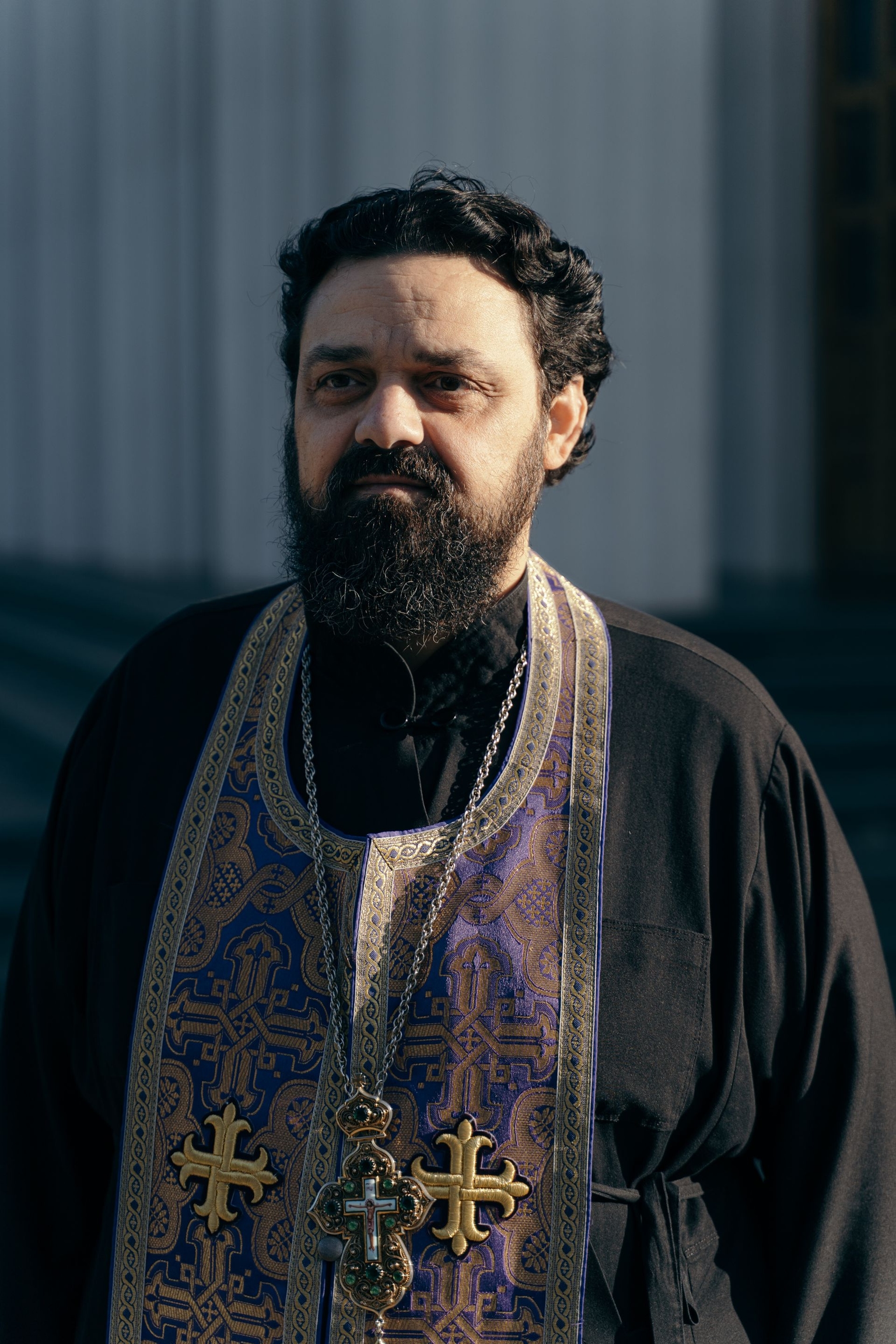
"It's not true. Priests must stay in front of icons and pray for people," he added. He said he was bothered by his colleagues who made political propaganda and told them to "mind their own business" and "pray for the country and for people."
"The church has a totally different mission, and we must be attentive."
While he serves the cathedral which is associated with the Russian patriarchate, he said he is against "subordination," because "that means you do not like being your own master, you do not like reading or learning, you don't like books, and only food and your belly."
As a citizen, Father Emilian said that he cast his own vote.
"I do not want war, and I do not want the misery happening around the world, in Russia," said Father Emilian. "There are good, beautiful values in Europe," he added, while expressing some reservations towards "the propagation" of sexual minorities.
Father Emilian, too, said he is worried about the vote-buying schemes.
"This is not the buying of votes but of minds, and it is a sin to sell yourself; it is the buying of dignity," he added. "I have long told (Russians), brothers, why have you started the war? It would have been better if you had given bread, people would have stuck with you. But if you come with tanks, if you beat someone, of course, those (people) will run away from you."
Yet, as the vote eventually showed, the priest's opinions are not shared by everyone.
"I voted for peace," Valentina, a painter selling her works in the park, told the Kyiv Independent. She dismissed EU integration as a way to peace, as ”other people's opinions."
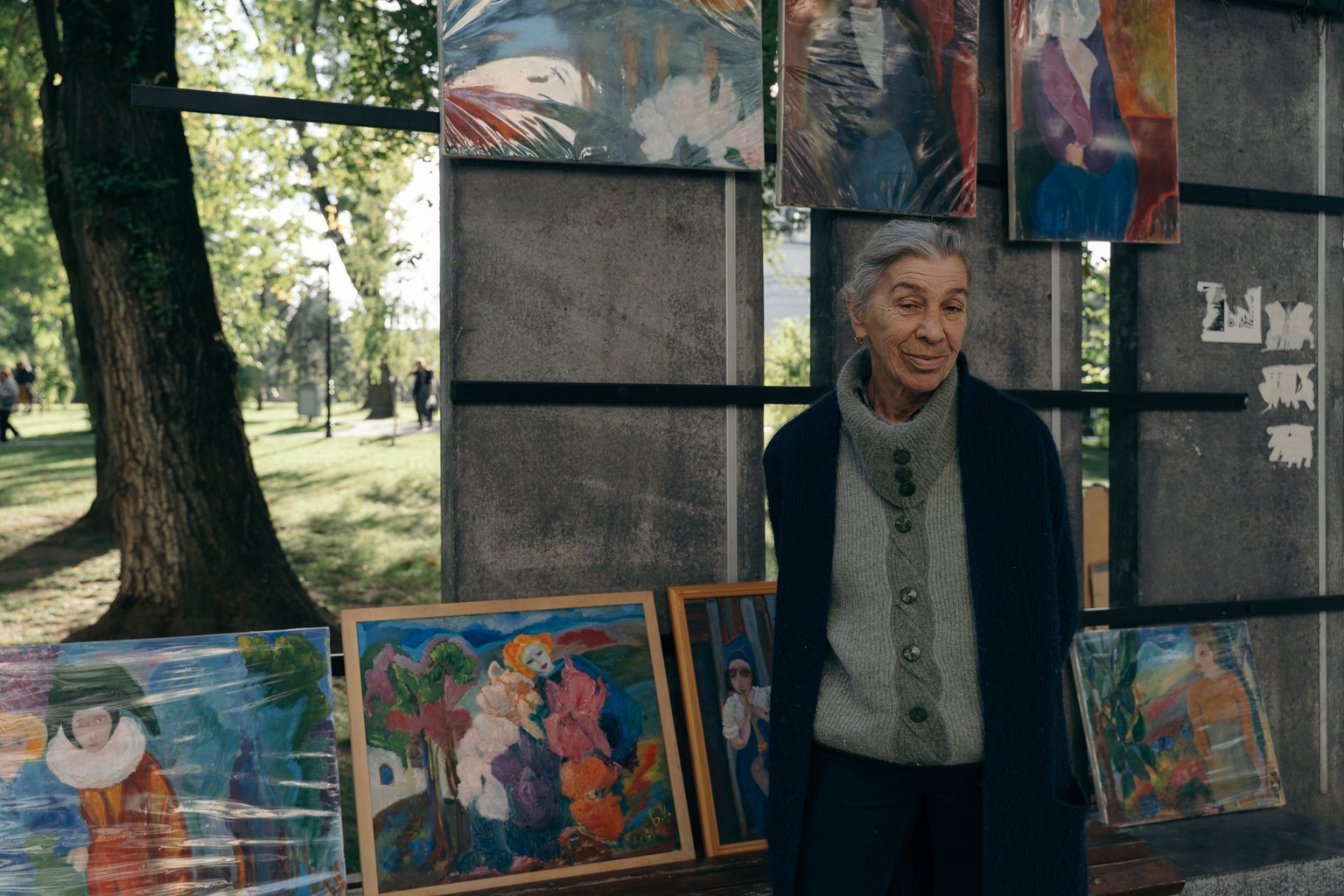
One place where Russia is seen as a friend rather than a foe is among residents of Russian-occupied Transnistria. More than 12,000 people came from the occupied region to the government-controlled territory to vote in special polling stations — some of which have had their activity briefly interrupted by false bomb alerts.
According to the NGO Promo-LEX, there was some private organised transportation involved for the residents of the occupied territories.
At Gura Bîcului, on the Dniester (Nistru) River, and in Anenii Noi, 30 kilometres west, people living in Transnistria were queuing to vote.
Opinions and world views were split. While some people denounced Chisinau's lack of democracy by closing down closer polling stations like the one in Varnita, others supported the decision. Each answer sparked vivid debates in the queue, revealing a polarised society stuck under Russia's thumb.
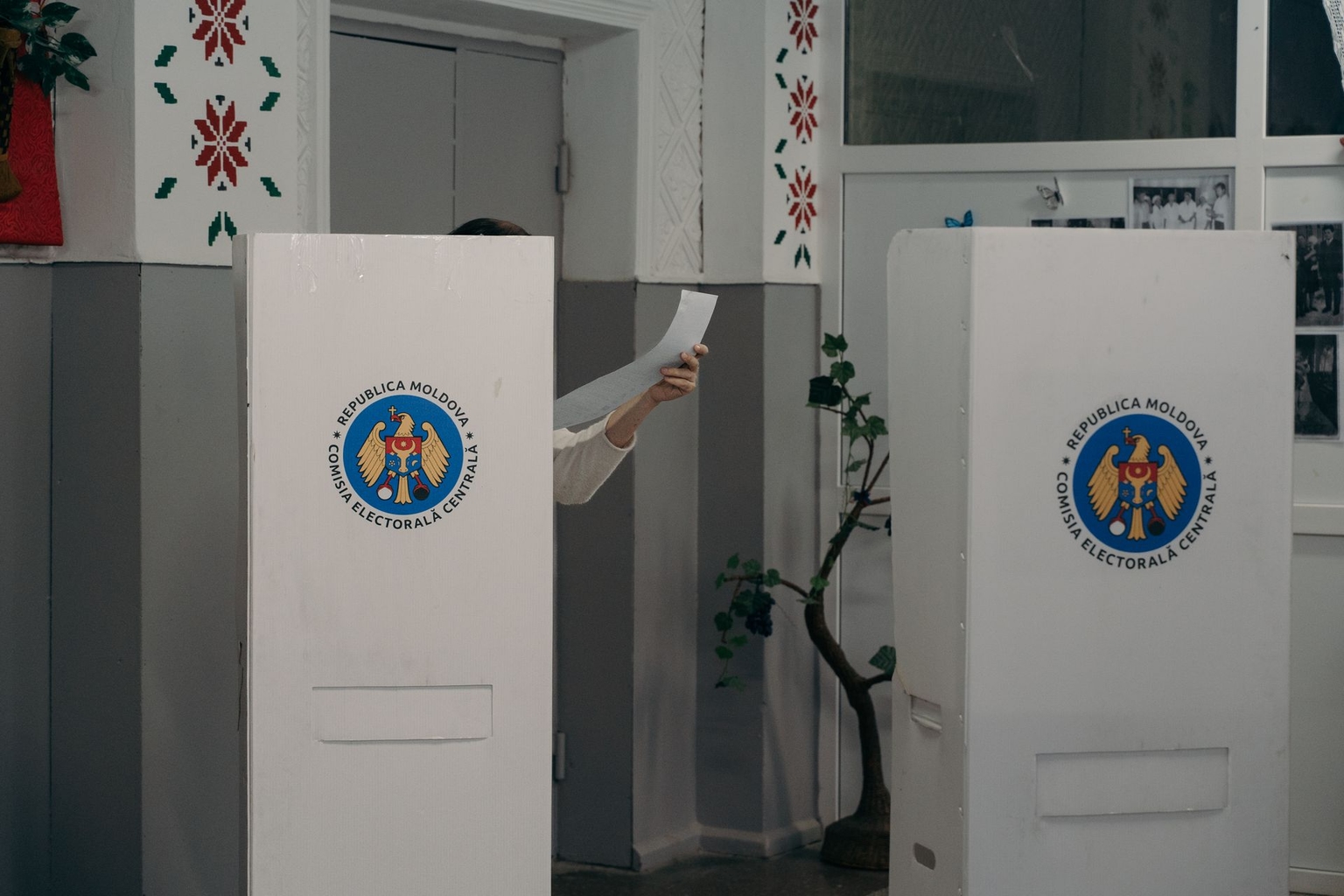
"The problem is that Transnistria does not respect the demands of free and correct elections. Chisinau is open to opening polling stations even in Transnistria, but the conditions must be that all political parties and mass media have access there. Instead, we continue to see a repressive regime with political prisoners. This is why some restrictions are needed in this case, which seems rational to me," said Ciobanu.
Afraid of the "militia" in Transnistria, most people declined the Kyiv Independent's request for photos. Fifty-one percent of Transnistria voters who did vote in the election supported the Patriotic Bloc, while 30 percent went to PAS.
Following the result, journalist Mariana Rață, from the independent channel TV8, wrote on Facebook that the vote was not for PAS but for "a European future and the decoupling from Russia."
She expressed hope for more competent people in key positions, genuine public consultations, and contests for top positions in key agencies.
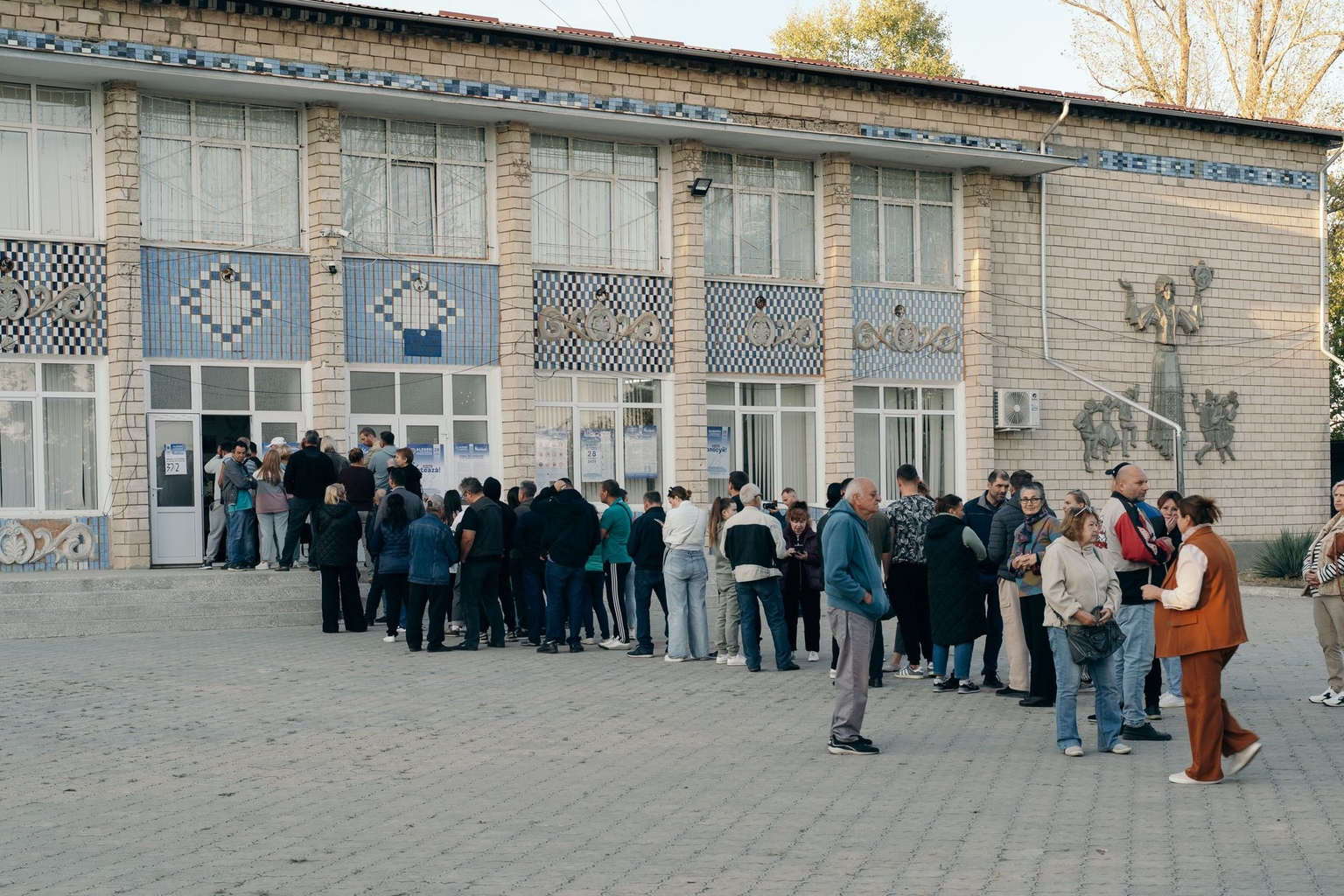
Alina Radu, from the newspaper Ziarul de Garda, expressed hope for the growth of other genuinely pro-European parties, "to remove Kremlin creatures from parliament for good."
"The main challenge now is that PAS maintains its speed because we have finished the bilateral screening and are about to open up the negotiation chapters. This requires systemic, assiduous work in very little time," said Ciobanu.
"We need an exemplary managerial mobilisation to become EU members by 2028, according to both Chisinau and Brussels plans."

